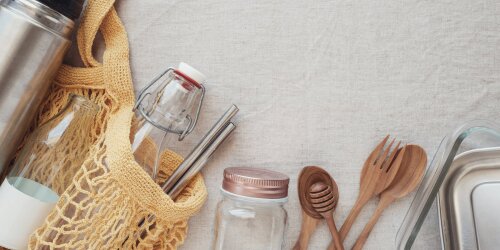Researcher: Laure Herweyers
Supervisors: Els Du Bois & Ingrid Moons
What if we, as designers, had the tools to develop successful reusable alternatives to single-use plastics that ensure long-term behaviour change from their users?

This research analyses the parameters that determine success and failure of continued user behaviour related to different reusable alternative products for single-use plastics. Plastic pollution is a very urgent environmental problem with rising attention from governments, industries, and consumers. The research has three goals: (i) USER: to provide a better understanding of the human-centred variables that influence the continued success or failure of single-use plastic alternatives, (ii) PRODUCT: to get an overview of the successful alternatives that cause actual long-term sustainable behaviour change, and (iii) DESIGN: to create a standardized method for Design for Sustainable Behaviour specifically for reusable alternatives for single-use plastics, put together with insights of multiple disciplines.
To achieve the first goal, several qualitative and quantitative methods from social sciences are applied to create a thorough understanding of human motivators and determinants for long-term behaviour and habit change, starting from socio-psychological theories theories (e.g CADM, Theory of Planned behaviour, SHIFT). The second goal is achieved by examining different strategies and tools for design, selecting interesting cases based on LCA studies and results from the surveys, and expert interviews. Diary studies will be done with a selection of existing alternatives and new designs, and by potential consumers from different clusters. The aim of these studies is to be able to make a distinction between different types of alternatives, with different levels of required change, and a different impact on the environment. Based on the results of these studies, the theoretical framework is continuously refined and verified. Finally, using the framework, a practical tool will be developed and tested with students and design professionals.
Period: 2020 - 2024
Funding type: BOF DOCPRO4